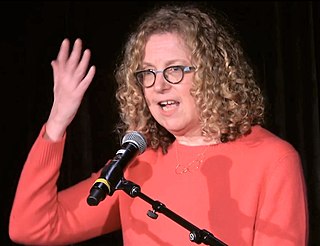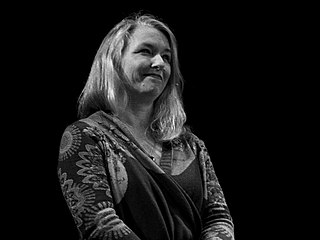A Quote by Mary Pipher
Girls face two major sexual issues in America in the 1990s: One is an old issue of coming to terms with their own sexuality, defining a sexual self, making sexual choices and learning to enjoy sex. The other issue concerns the dangers girls face of being sexually assaulted. By late adolescence, most girls today either have been traumatized or know girls who have. They are fearful of males even as they are trying to develop intimate relations with them.
Related Quotes
Girls are freer to express their femininity and their sexuality and we're not tamping that down or denying it anymore. But it ends up putting them, first of all, in this box. And secondly, premature sexualization of girls actually does the opposite of what people think it might; it actually disconnects them from their sexuality and makes for decreased sexual health as they get older.
I didn't intend to work on the issue of child marriage, but I felt like it was a topic that is related to a lot of the other issues, like acid attacks, self-immolation, and female genital mutilation. I wanted to continue to drive the conversation, but my overall goal is to protect girls. Photography has a way of addressing the viewer whether they want to deal with it or not, and that's why photography is such a good medium for documenting the issues that girls face.
Indeed, girls can be so in need of social approval that they confuse harassment for acceptance--thinking that any attention is better than none. Since many girls as well as boys buy the idea that sexual aggression and exploitation is normal masculine behavior, it may not even occur to them to demand to be treated as equals.
Kids are told there are no differences between boys and girls. They are told there is no such thing ultimately as right and wrong. Values are relative. Truth is relative. Morality is defined by individual choice. If that isn't a recipe for sexual harassment and other forms of sexual and physical abuse, I don't know what it is.
There are moments when you are, um, encouraged to dress a certain way. But I can't. It just erodes my soul. That's no criticism to girls who can wear a tiny dress and kill it - that's awesome. People always attribute being a feminist to hating girls being sexual, and that's not it at all. I'm just not into it.
If sexuality is beginning in such a skewed way: that boys expect to receive sexual pleasure and girls are expected to give it without reciprocation, is that why young women, even unintentionally, turn to getting something else in return for sex? Whether it be popularity, career success, professional attention.


































